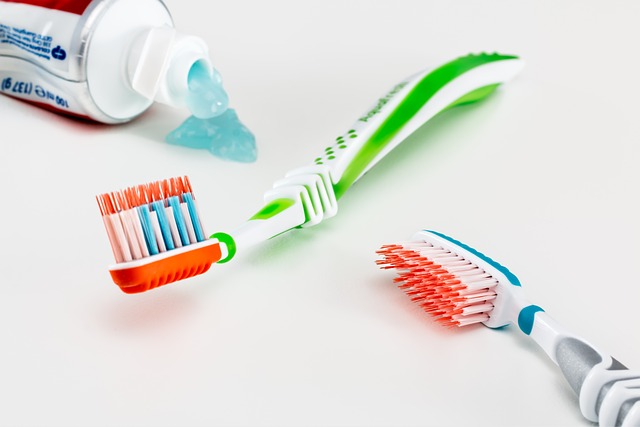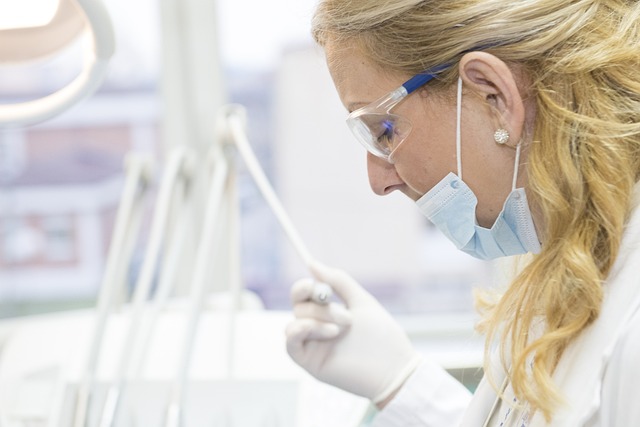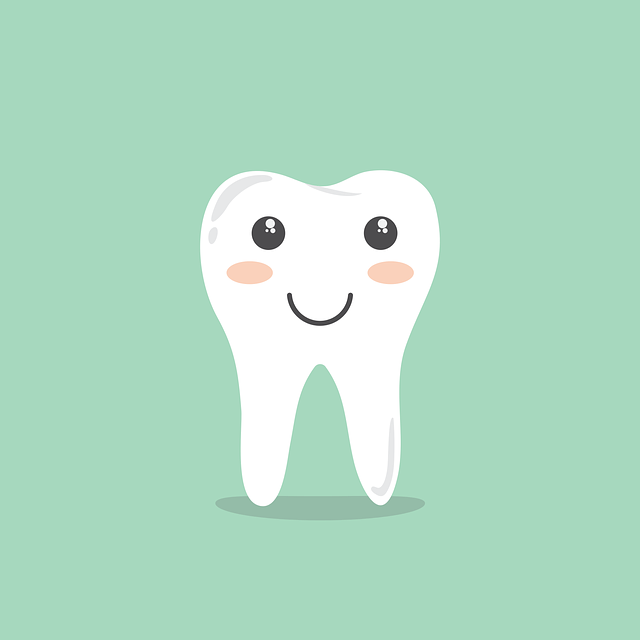When Can I Enjoy Fizzy Drinks After Tooth Extraction?
Are you eagerly awaiting the day you can indulge in a refreshing fizzy drink after your tooth extraction? We completely understand the craving! Tooth extraction can leave you longing for some carbonated goodness. But when is the right time to enjoy fizzy drinks without risking your oral health? In this article, we will provide you with all the information you need to know about when you can savor those effervescent beverages once again. Stay tuned for our friendly guide to help you navigate the post-extraction stage with confidence!
1. Understanding the Importance of Post-Extraction Care for Your Teeth
Once a tooth extraction is complete, it’s crucial to understand the significance of post-extraction care to facilitate a seamless and speedy recovery. Taking proper care of the extraction site, following specific guidelines, and practicing good oral hygiene can help prevent complications and promote healing. Here’s what you need to know:
Immediate Care:
- Gently bite down on a gauze pad for about 30 minutes, ensuring a blood clot forms in the extraction site.
- Avoid vigorous rinsing or spitting for the first 24 hours.
- Apply an ice pack to reduce swelling, 10 minutes on and 10 minutes off.
- Say no to smoking or drinking through a straw as it may dislodge the blood clot and impede healing.
Long-term Care:
- Brush your teeth gently and avoid the extraction site for the first 24 hours.
- Rinse your mouth with a saltwater solution (1/2 teaspoon of salt in a cup of warm water) after the first 24 hours, at least 2 times a day, especially after meals.
- Follow a soft food diet for several days, incorporating foods like yogurt, mashed potatoes, and soup.
- Take pain medication as prescribed by your dentist and attend follow-up appointments to monitor healing progress.
By understanding and complying with post-extraction care instructions, you can ensure a smooth recovery process, minimize discomfort, and help protect your overall oral health.
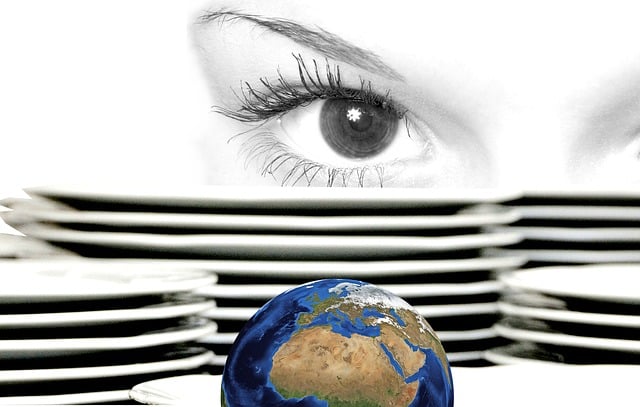
2. Exploring the Impact of Fizzy Drinks on Tooth Extraction Recovery
Recovering from tooth extraction can be a challenging journey, but did you know that the beverages you consume can affect your recovery process? In this section, we will delve into the impact of fizzy drinks on tooth extraction recovery and provide you with some helpful information to make informed choices.
The Effects of Fizzy Drinks on Your Recovery:
- Prolonged Healing: Fizzy drinks contain high amounts of sugar and acid, which can impede the healing process after tooth extraction. Consuming these beverages can slow down the formation of blood clots, delay tissue regeneration, and increase the risk of infection.
- Sensitivity and Discomfort: The carbonation in fizzy drinks can cause sensitivity and discomfort, especially when they come into contact with the extraction site. This can hinder your ability to eat and drink comfortably, prolonging your recovery time.
- Inflammation and Swelling: The excessive sugar found in fizzy drinks may lead to inflammation and swelling in the extraction area. These symptoms can heighten discomfort and delay the reduction of swelling, making it essential to limit your fizzy drink consumption during recovery.
It’s important to remember that everyone’s recovery experience is unique, and it’s best to consult your dentist or oral surgeon for specific recommendations regarding fizzy drinks and your individual situation. By making mindful choices and opting for healthier alternatives, you can support a faster and smoother recovery process after tooth extraction.

3. Why it’s Crucial to Avoid Fizzy Drinks Immediately After a Tooth Extraction
After a tooth extraction, it is important to avoid consuming fizzy drinks for several reasons. Firstly, carbonated beverages can cause discomfort and pain by irritating the fresh wound and the surrounding tissues. The bubbling effect of these drinks can disrupt the healing process and prolong the recovery period.
Secondly, fizzy drinks are often high in sugar and acid content, which can have detrimental effects on your oral health. Sugar feeds harmful bacteria, leading to dental plaque and tooth decay. Exposing the extraction site to acid can also damage the sensitive tissues and delay the formation of a protective blood clot.

4. How Fizzy Drinks Can Jeopardize Your Healing Process
While it’s tempting to reach for a can of carbonated goodness, consuming fizzy drinks during your healing process can have adverse effects on your body’s recovery. Here’s why:
Sugar overload: Fizzy drinks are loaded with sugar, which can have a negative impact on your healing process. Excessive sugar consumption can compromise your immune system, making it harder for your body to fight off infections and repair damaged tissues. It’s important to remember that even non-diet fizzy drinks contain an overwhelming amount of sugar.
Dehydration: Fizzy drinks not only contain high amounts of sugar but also have a dehydrating effect on your body. The carbonation in these beverages can act as a diuretic, causing increased urine production and subsequently leading to dehydration. Staying properly hydrated is crucial for your body to heal efficiently, so it’s best to opt for water or other healthy alternatives instead.
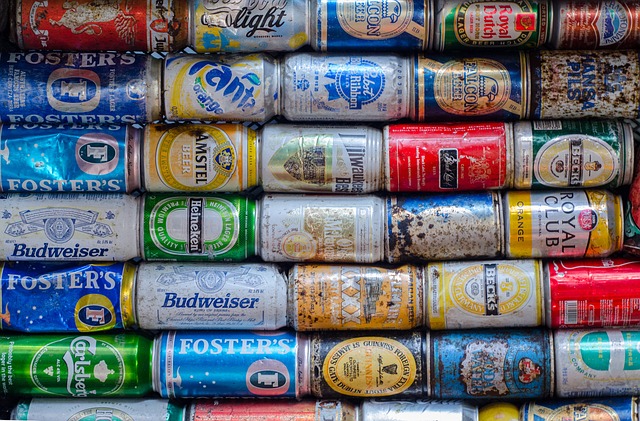
5. The Ideal Timeframe to Safely Indulge in Fizzy Drinks After Tooth Extraction
After an extraction, it’s natural to crave your favorite fizzy drinks, but it’s crucial to give your mouth ample time to heal. The ideal timeframe for safely indulging in carbonated beverages post tooth extraction depends on a few factors. Here’s a breakdown of what to consider:
1. Consult with your dentist: Every extraction is unique, and your dentist will provide personalized advice based on your specific case. They will consider factors such as the complexity of the extraction, the condition of the surrounding gums and bone, and your overall oral health.
2. Initial recovery period: During the first 24-48 hours, it’s important to avoid carbonated drinks altogether. The bubbles in fizzy beverages can dislodge the blood clot that forms in the socket, leading to a condition called dry socket. This painful condition can delay the healing process. Stick to consuming cool, non-carbonated fluids and follow your dentist’s post-extraction instructions carefully.
6. Navigating Your Dental Health: When Can You Begin Enjoying Fizzy Drinks Again?
Fizzy drinks, such as soda or carbonated beverages, are undoubtedly delicious and refreshing. However, after certain dental procedures, it’s important to be cautious before diving back into your favorite fizzy beverages. Here’s a quick guide to help you navigate when you can indulge in fizzy drinks again without compromising your dental health.
1. Consider the Procedure: The type of dental procedure you had will determine how long you should wait before enjoying fizzy drinks again. For instance, if you recently had a teeth whitening treatment, it’s highly recommended to avoid fizzy drinks for at least 48 hours. On the other hand, if you had a tooth extraction, it’s advisable to wait for several days, or as advised by your dentist, before consuming carbonated beverages to prevent any potential complications.
- 2. Allow for Healing: After any dental procedure, your mouth needs time to heal properly. Carbonated drinks can be acidic and may irritate the delicate tissues in your mouth. Therefore, it’s crucial to follow the recommendations of your dentist and give your mouth the necessary time to heal before reintroducing fizzy drinks into your diet.
- 3. Make It a Treat: One of the best ways to enjoy fizzy drinks responsibly is by treating them as an occasional indulgence rather than a daily habit. Consuming fizzy drinks in moderation will not only protect your dental health but also prevent potential adverse effects on your overall well-being, such as weight gain and increased risk of tooth decay.
7. Tips and Precautions to Safely Reintroduce Fizzy Drinks Into Your Diet Post-Extraction
After your dental extraction, you may be eager to enjoy your favorite fizzy drinks again. However, it’s important to take some precautions to ensure a safe reintroduction to these beverages. Follow these tips to protect your oral health and make the process as smooth as possible:
- Wait until the healing process is complete: Give your extraction site enough time to heal before reintroducing fizzy drinks into your diet. This typically takes about 24 to 48 hours, but consult with your dentist for an accurate timeframe.
- Start with small sips: When you’re ready to have a fizzy drink, start by taking small sips instead of gulping down the entire beverage. This allows you to monitor your mouth’s response and prevents any sudden discomfort.
- Opt for low-sugar or sugar-free options: Fizzy drinks are often packed with sugar, which can increase the risk of tooth decay. Choose low-sugar or sugar-free options to minimize the impact on your oral health.
Remember, it’s crucial to practice good oral hygiene habits, such as regular brushing and flossing, even when reintroducing fizzy drinks into your diet. If you experience any pain, sensitivity, or unusual symptoms, consult your dentist for further guidance.
8. Identifying Signs and Symptoms Indicating That You’re Ready for Fizzy Drinks
Are you wondering if it’s time to indulge in some fizzy drinks? It’s important to listen to your body and pay attention to the signs and symptoms it may be giving you. While fizzy drinks can be enjoyable and refreshing, they may not be suitable for everyone. Here are a few indications that you might be ready to reach for that carbonated beverage:
- Ability to tolerate carbonation: If you can comfortably handle carbonated beverages without experiencing any discomfort or digestive issues, it might be a sign that your body is ready for fizzy drinks.
- Desire for a bubbly sensation: If you find yourself craving the effervescence and fizziness that comes with a carbonated drink, it could be a sign that your taste buds are ready for some bubbly goodness.
- Feeling of hydration: If you’ve been properly hydrating yourself with water and other non-carbonated beverages, and you still feel hydrated and balanced, it could be an indication that your body is ready to enjoy a fizzy drink as a treat.
Remember, moderation is key when it comes to fizzy drinks. Enjoying them occasionally in a balanced and mindful manner can add a delightful touch to your day. However, it’s important to be aware of any potential negative effects fizzy drinks may have on your health, such as tooth enamel erosion or bloating. Always listen to your body and make informed choices about the beverages you consume.
9. Alternative Beverage Options to Quench Your Thirst During Tooth Extraction Recovery
Recovering from a tooth extraction can be uncomfortable, and it’s important to choose the right beverages to stay hydrated without causing any complications. Here are some alternative options to keep you refreshed while avoiding any pain or discomfort during your tooth extraction recovery:
- 1. Water: The ultimate thirst-quencher and the safest option after tooth extraction. Make sure it’s cool, not ice-cold, to prevent sensitivity.
- 2. Herbal tea: Opt for caffeine-free herbal teas like chamomile, ginger, or mint. Avoid using a straw to prevent any disturbance to the surgical site.
- 3. Fruit and vegetable juices: Freshly squeezed juices packed with nutrients can provide a refreshing and vitamin-rich alternative while avoiding citrus juices that might cause irritation.
- 4. Smoothies: Blend together soft fruits, yogurt, and crushed ice to create a delicious and soothing beverage. Avoid adding seeds or nuts that might get stuck in the healing socket.
- 5. Broth-based soups: Warm, low-sodium soups not only hydrate but also provide nourishment during recovery. Ensure they are lukewarm to avoid pain.
Remember, it’s crucial to follow your dentist’s instructions and consume only soft and cool beverages to aid in your tooth extraction recovery. If you have any concerns, always consult your dental professional.
10. Your Dentist’s Professional Advice: Consultation and Individualized Guidelines for Fizzy Drink Consumption After Tooth Extraction
After a tooth extraction, it is important to take care of your oral health and follow your dentist’s professional advice. One aspect that your dentist will provide guidance on is the consumption of fizzy drinks. Although it may be tempting to indulge in a refreshing soda or carbonated beverage, it is crucial to understand the impact it can have on your healing process. Here are some consultation and individualized guidelines that your dentist may recommend:
Avoid carbonated beverages for the first few days:
- During the initial healing period, it is best to avoid fizzy drinks altogether.
- Carbonation can cause discomfort and disturb the blood clot that forms in the extraction site.
- Substitute your cravings with non-carbonated alternatives like water, herbal tea, or diluted fruit juices.
Gradually reintroduce fizzy drinks:
- After a few days, you can start reintroducing fizzy drinks, but in moderation.
- Choose drinks with lower levels of carbonation and avoid those with added sugars or acids.
- Use a straw positioned away from the extraction site to minimize contact with your healing tissues.
- Rinse your mouth with water after consuming fizzy drinks to remove any residue and maintain oral hygiene.
Remember, each individual’s healing process may vary, so it’s important to consult with your dentist for personalized advice. Your dentist will consider factors like the complexity of the extraction, your overall oral health, and any specific conditions that may require additional precautions. By following their professional advice, you can ensure a smooth recovery and maintain excellent oral health.
Frequently Asked Questions
Q: When can I enjoy fizzy drinks after a tooth extraction?
A: After a tooth extraction, it is important to give your mouth time to heal properly. While it can be tempting to indulge in fizzy drinks, it is advisable to wait for the right time to enjoy them without risking any complications.
Q: How long should I wait before consuming fizzy drinks after a tooth extraction?
A: It is generally recommended to wait at least 24 to 48 hours before consuming any fizzy drinks following a tooth extraction. This waiting period allows for the initial healing process to take place, reducing the risk of possible complications.
Q: What are the risks of consuming fizzy drinks too soon after a tooth extraction?
A: Consuming fizzy drinks too soon after a tooth extraction can lead to several potential risks. The carbonation and acidity in these beverages may cause discomfort, irritation, or even damage to the extraction site. Furthermore, the pressure caused by the fizz can dislodge the blood clot in the socket, leading to a painful condition known as dry socket.
Q: What should I do if I am experiencing discomfort or pain in the extraction site?
A: If you are experiencing discomfort or pain in the extraction site, it is essential to reach out to your dentist or oral surgeon. They will be able to assess the situation and provide appropriate advice or treatment if necessary.
Q: Are there any alternatives to fizzy drinks that I can enjoy during the healing process?
A: Absolutely! While it’s best to avoid fizzy drinks in the initial stages of healing, there are several alternatives you can enjoy. Consider hydrating with plain water, herbal teas, or natural fruit juices without added sugars. These options will not only help to prevent dehydration but also aid in the healing process.
Q: Are there any long-term implications if I consume fizzy drinks too soon after tooth extraction?
A: It is crucial to give your mouth time to properly heal after a tooth extraction. While consuming fizzy drinks too soon may not have severe long-term implications, it can prolong the healing process and increase the risk of complications such as dry socket or infection. It is always best to err on the side of caution and follow the dentist’s recommendations for post-extraction care.
Q: Can I consume fizzy drinks if I use a straw after a tooth extraction?
A: It is generally not advised to use a straw after a tooth extraction, as the sucking motion can potentially dislodge the blood clot and lead to dry socket. However, it is best to consult with your dentist for personalized advice and guidance regarding the use of a straw.
Q: When will it be safe to reintroduce fizzy drinks into my diet after a tooth extraction?
A: The timing for reintroducing fizzy drinks into your diet can vary depending on your individual healing process. It is typically recommended to wait at least one week after the extraction, but it is essential to consult with your dentist for specific guidelines tailored to your case.
Q: What are some tips for enjoying fizzy drinks after a tooth extraction?
A: When you reach the appropriate time to enjoy fizzy drinks, it is advisable to follow these tips: take small sips instead of gulps, avoid swishing the liquid around your mouth, and rinse your mouth with plain water afterward to minimize any lingering acidity. These precautions will help protect the extraction site and promote a smooth healing process.
Remember, always consult your dentist for specific advice regarding your tooth extraction recovery and when it’s safe to enjoy fizzy drinks again.
Conclusion
In conclusion, the road to sipping your favorite fizzy drinks after a tooth extraction requires a bit of patience and care. While it’s understandable to long for that refreshing fizz, it is crucial to give your mouth the time it needs to heal properly. Remember, every individual heals at their own pace, so it’s essential to consult your dentist for personalized advice. Slowly reintroducing carbonation into your diet, starting with non-acidic and sugar-free options, and gradually moving towards your favorite beverages can help protect your delicate gums and prevent any unwanted discomfort. So, sit tight and before you know it, you’ll be raising a glass of your favorite fizzy delight to a healthy, pain-free smile. Cheers to good oral health and joyful bubbles!
